Month: October 2025
Turkey’s Drone Sales to Kosovo Test its Friendship with Serbia
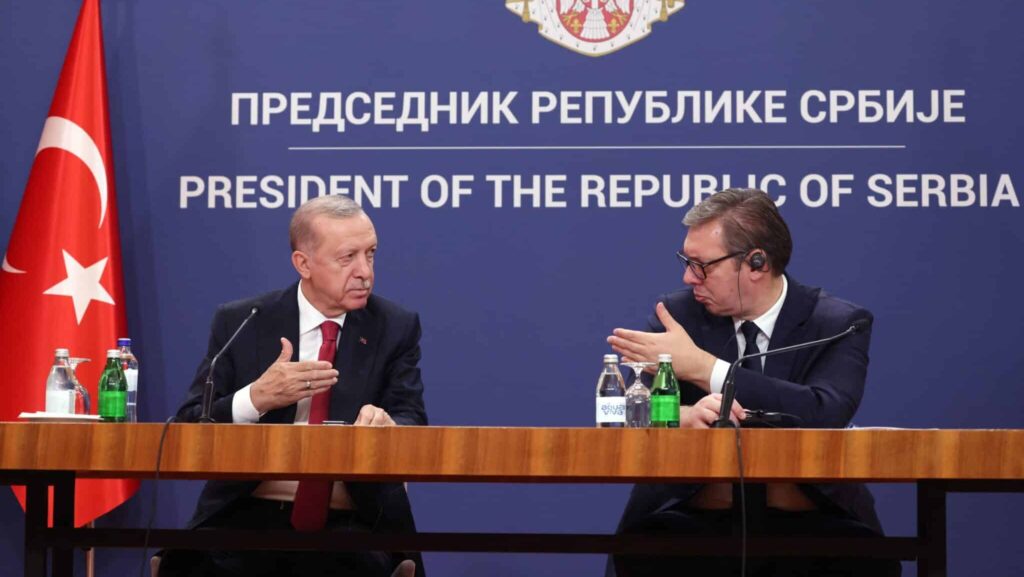
Turkey was among the first to recognise Kosovo in 2008 and has since backed its efforts for wider international recognition. During the early 2010s, frequent visits between then prime minister Hashim Thaci and Erdogan deepened ties, while Turkish companies secured major stakes in Kosovo’s economy: from the airport and electricity distribution to a significant share of the banking sector.
State of Denial: How Greece Deploys Lawfare Against the Victims of its Failures

Giannis Kafkas had dreams of making it as a photographer until he was bashed in the back of the head. Fourteen years ago, Greece was in the throes of a sovereign debt crisis that was threatening to bring down the euro-zone. On May 11, 2011, Kafkas joined tens of thousands of his fellow Athenians in a mass demonstration against the crippling austerity measures imposed by Greece’s international creditors. As the crowd snaked past the parliament building, it was abruptly set upon by riot police. “There was no escape, they were beating everyone,” he recalls. “I’ve never seen such fury.”
Kosovo Spy Agency’s Undocumented ‘Special Ops’ Spending: Probe Halted
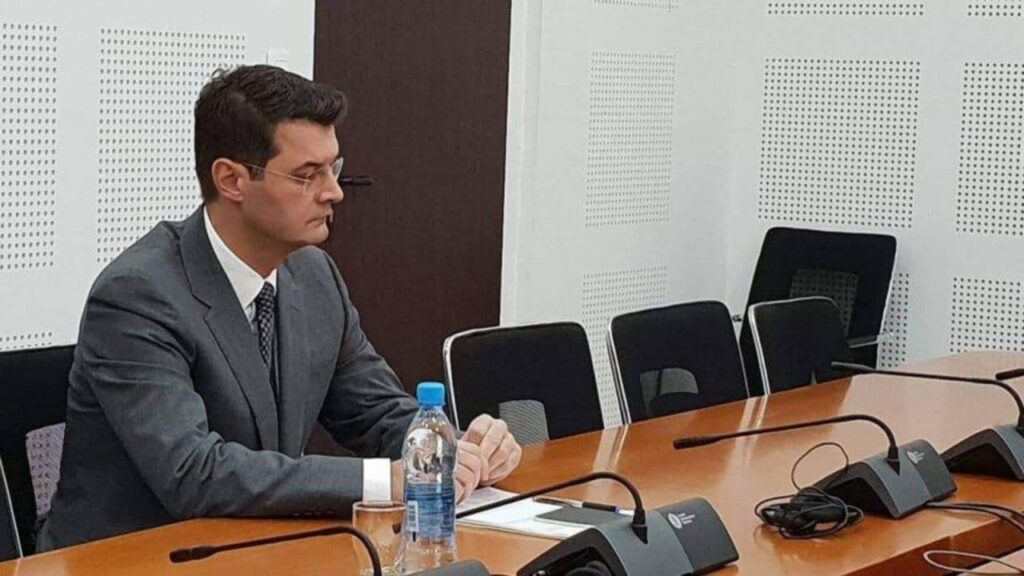
Prosecutors in Kosovo have shelved an investigation based on an internal audit at the Kosovo intelligence agency that identified nearly two million euros of alleged undocumented spending under three former directors, BIRN has found.
An internal audit at Kosovo’s state intelligence agency, AKI, identified undocumented spending of some two million euros from a ‘special operations fund’ under three former directors between 2017 and 2020, but prosecutors closed their investigation citing the statute of limitations and a lack of evidence, BIRN can reveal.
Albania Emerges as Destination Port for Illicit Oil from Russia and Libya
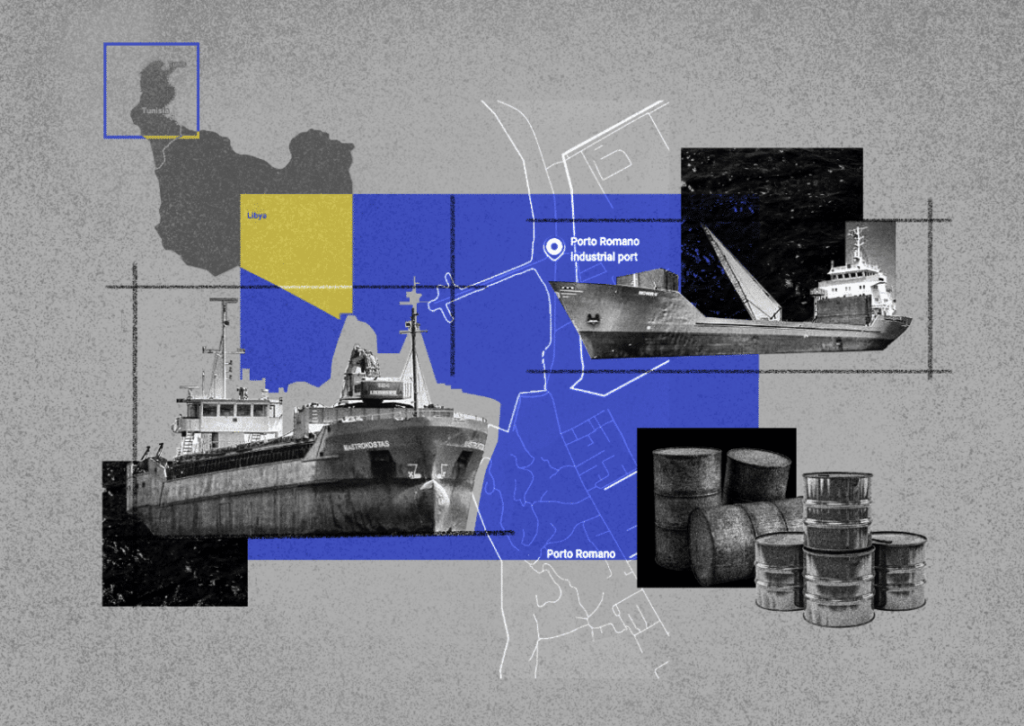
It was a cold and windy day in January this year when the Besart and the Aya Zanoubya approached the port of Porto Romano near Durres on Albania’s Adriatic coast, the latter being towed due to an electrical failure that had supposedly prevented it from continuing to its stated destination.
Their declared cargo was cement, but, acting on a tip-off, investigators discovered something else – 600,000 litres of undeclared diesel fuel.
President Donald J. Trump’s Comprehensive Plan to End the Gaza Conflict:
- Gaza will be a deradicalized terror-free zone that does not pose a threat to its neighbors.
- Gaza will be redeveloped for the benefit of the people of Gaza, who have suffered more than enough.
- If both sides agree to this proposal, the war will immediately end. Israeli forces will withdraw to the agreed upon line to prepare for a hostage release. During this time, all military operations, including aerial and artillery bombardment, will be suspended, and battle lines will remain frozen until conditions are met for the complete staged withdrawal.
- Within 72 hours of Israel publicly accepting this agreement, all hostages, alive and deceased, will be returned.
- Once all hostages are released, Israel will release 250 life sentence prisoners plus 1700 Gazans who were detained after October 7th 2023, including all women and children detained in that context. For every Israeli hostage whose remains are released, Israel will release the remains of 15 deceased Gazans.
- Once all hostages are returned, Hamas members who commit to peaceful co-existence and to decommission their weapons will be given amnesty. Members of Hamas who wish to leave Gaza will be provided safe passage to receiving countries.
- Upon acceptance of this agreement, full aid will be immediately sent into the Gaza Strip. At a minimum, aid quantities will be consistent with what was included in the January 19, 2025, agreement regarding humanitarian aid, including rehabilitation of infrastructure (water, electricity, sewage), rehabilitation of hospitals and bakeries, and entry of necessary equipment to remove rubble and open roads.
- Entry of distribution and aid in the Gaza Strip will proceed without interference from the two parties through the United Nations and its agencies, and the Red Crescent, in addition to other international institutions not associated in any manner with either party. Opening the Rafah crossing in both directions will be subject to the same mechanism implemented under the January 19, 2025 agreement.
- Gaza will be governed under the temporary transitional governance of a technocratic, apolitical Palestinian committee, responsible for delivering the day-to-day running of public services and municipalities for the people in Gaza. This committee will be made up of qualified Palestinians and international experts, with oversight and supervision by a new international transitional body, the “Board of Peace,” which will be headed and chaired by President Donald J. Trump, with other members and heads of State to be announced, including Former Prime Minister Tony Blair. This body will set the framework and handle the funding for the redevelopment of Gaza until such time as the Palestinian Authority has completed its reform program, as outlined in various proposals, including President Trump’s peace plan in 2020 and the Saudi-French proposal, and can securely and effectively take back control of Gaza. This body will call on best international standards to create modern and efficient governance that serves the people of Gaza and is conducive to attracting investment.
- A Trump economic development plan to rebuild and energize Gaza will be created by convening a panel of experts who have helped birth some of the thriving modern miracle cities in the Middle East. Many thoughtful investment proposals and exciting development ideas have been crafted by well-meaning international groups, and will be considered to synthesize the security and governance frameworks to attract and facilitate these investments that will create jobs, opportunity, and hope for future Gaza.
- A special economic zone will be established with preferred tariff and access rates to be negotiated with participating countries.
- No one will be forced to leave Gaza, and those who wish to leave will be free to do so and free to return. We will encourage people to stay and offer them the opportunity to build a better Gaza.
- Hamas and other factions agree to not have any role in the governance of Gaza, directly, indirectly, or in any form. All military, terror, and offensive infrastructure, including tunnels and weapon production facilities, will be destroyed and not rebuilt. There will be a process of demilitarization of Gaza under the supervision of independent monitors, which will include placing weapons permanently beyond use through an agreed process of decommissioning, and supported by an internationally funded buy back and reintegration program all verified by the independent monitors. New Gaza will be fully committed to building a prosperous economy and to peaceful coexistence with their neighbors.
- A guarantee will be provided by regional partners to ensure that Hamas, and the factions, comply with their obligations and that New Gaza poses no threat to its neighbors or its people.
- The United States will work with Arab and international partners to develop a temporary International Stabilization Force (ISF) to immediately deploy in Gaza. The ISF will train and provide support to vetted Palestinian police forces in Gaza, and will consult with Jordan and Egypt who have extensive experience in this field. This force will be the long-term internal security solution. The ISF will work with Israel and Egypt to help secure border areas, along with newly trained Palestinian police forces. It is critical to prevent munitions from entering Gaza and to facilitate the rapid and secure flow of goods to rebuild and revitalize Gaza. A deconfliction mechanism will be agreed upon by the parties.
- Israel will not occupy or annex Gaza. As the ISF establishes control and stability, the Israel Defense Forces (IDF) will withdraw based on standards, milestones, and timeframes linked to demilitarization that will be agreed upon between the IDF, ISF, the guarantors, and the Unites States, with the objective of a secure Gaza that no longer poses a threat to Israel, Egypt, or its citizens. Practically, the IDF will progressively hand over the Gaza territory it occupies to the ISF according to an agreement they will make with the transitional authority until they are withdrawn completely from Gaza, save for a security perimeter presence that will remain until Gaza is properly secure from any resurgent terror threat.
- In the event Hamas delays or rejects this proposal, the above, including the scaled-up aid operation, will proceed in the terror-free areas handed over from the IDF to the ISF.
- An interfaith dialogue process will be established based on the values of tolerance and peaceful co-existence to try and change mindsets and narratives of Palestinians and Israelis by emphasizing the benefits that can be derived from peace.
- While Gaza re-development advances and when the PA reform program is faithfully carried out, the conditions may finally be in place for a credible pathway to Palestinian self-determination and statehood, which we recognize as the aspiration of the Palestinian people.
- The United States will establish a dialogue between Israel and the Palestinians to agree on a political horizon for peaceful and prosperous co-existence.
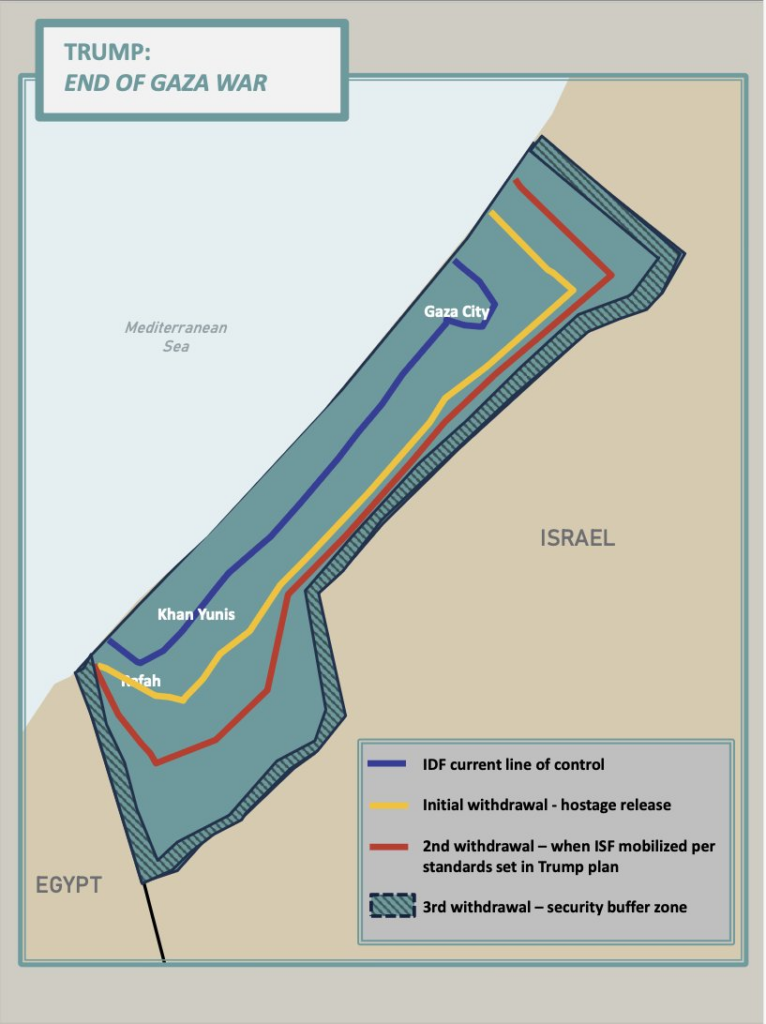
France – L’échec de la politique migratoire doit servir de leçon aux autres pays

La question de l’immigration et de l’intégration est un des sujets importants des convulsions politiques que traverse la France. La politique migratoire actuellement en vigueur en France est aujourd’hui remise en cause, non seulement dans sa mise en œuvre, mais aussi dans son principe même. Les tensions identitaires croissantes obligent à mener une analyse froide et non-partisane : que nous enseignent les dernières décennies sur l’abandon d’une politique d’assimilation forte, et quel avenir se dessine pour la France ?
Quel est l’avenir des bases russes en Syrie ?
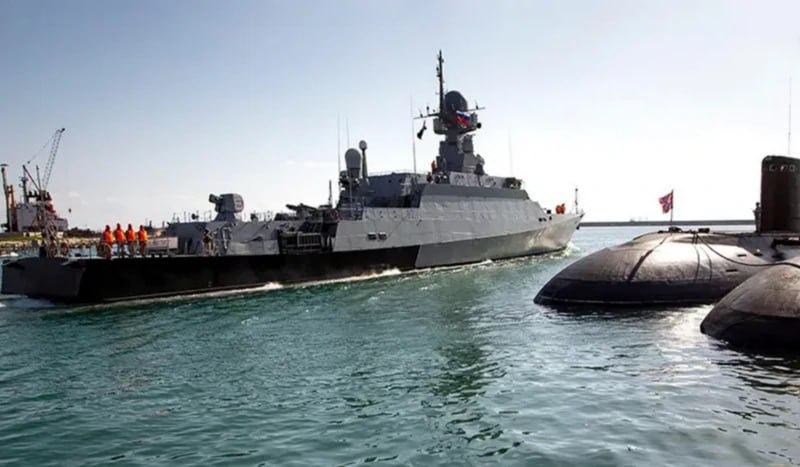
Lavrov a suggéré qu’ils pourraient faciliter l’envoi d’aide à l’Afrique, mais il est également possible qu’ils accueillent des pourparlers militaro-diplomatiques complexes entre toutes les parties prenantes en Syrie tout en aidant ses forces armées à maintenir l’unité nationale en les rééquipant, en les formant et en les conseillant également.
ISIS regroups in Iraq, Syria, and Lebanon: a new strategy?
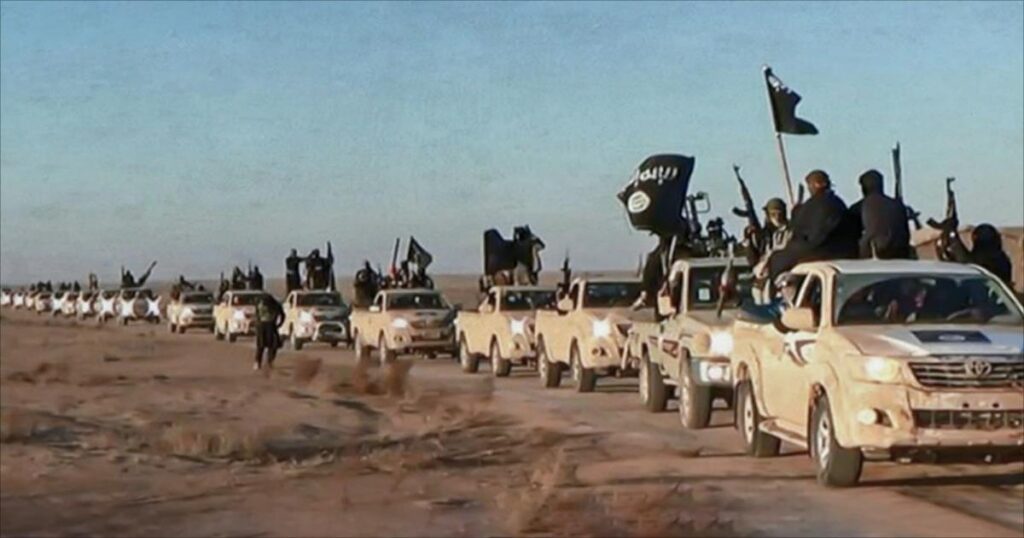
ISIS remains active across the Syria–Iraq and Syria–Lebanon border belts, primarily through dispersed sleeper cells that stage low‑signature attacks to prove presence, test security responses, and cultivate new recruitment streams.
Recent field reporting and official statements point to a tactical adjustment: fewer mass‑casualty operations, more pinprick bombings, assassinations, and roadside attacks in remote terrain—especially the Syrian Badia, the Deir ez‑Zor countryside, and eastern Hasakah—along with infiltration corridors that abut Iraq and, to a lesser extent, Lebanon’s rugged frontier. Coalition and local security services warn that pressure lapses could open space for an escalation.
The enduring danger of Zawahiri’s vision
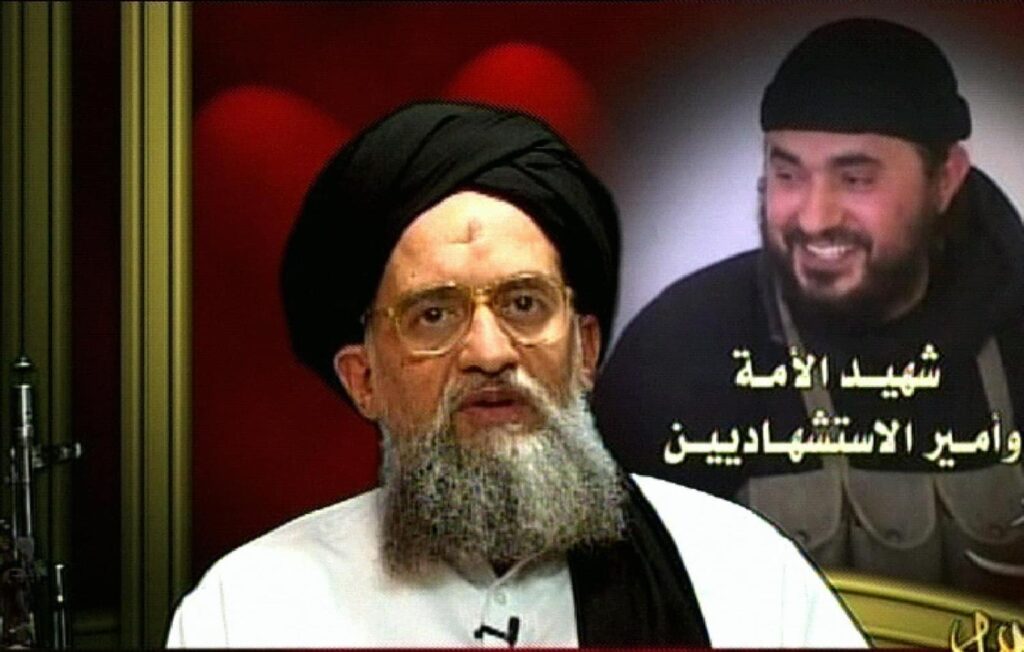
A new biography reveals how the slain al-Qaeda leader created an ideology and infrastructure that outlived him.
Sajjan Gohel’s important work on deceased al-Qaeda leader Ayman al-Zawahiri is not only highly readable but constitutes a much more complete biographical study than the very few works previously published on one of the most significant Islamist leaders.
